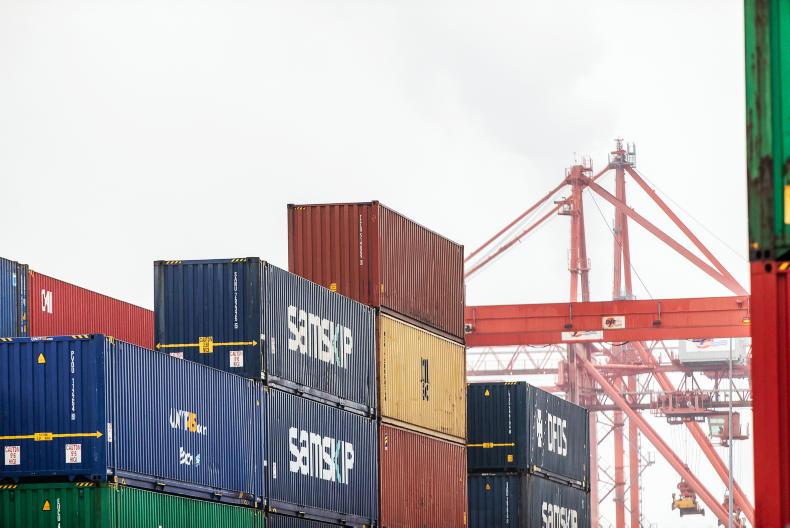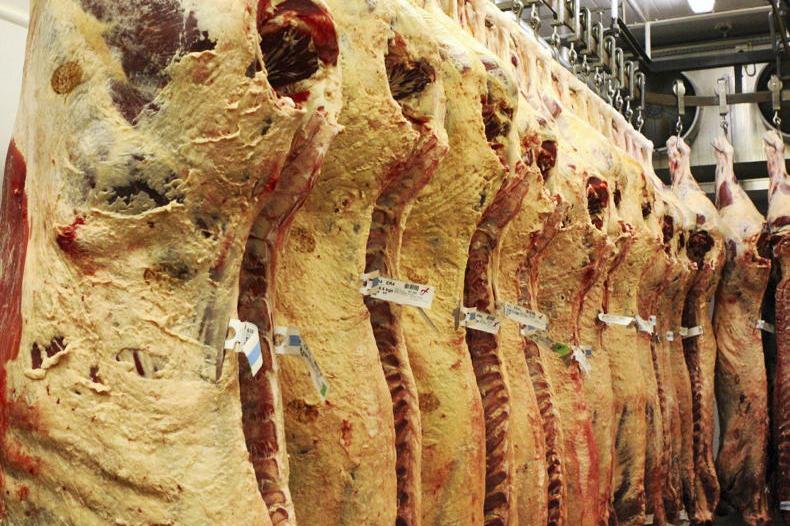Out of the top 10 importers of beef into the UK market, Poland is the only country to have increased its volume in the first four months of 2020.
Over the aforementioned period, official figures from the HMRC show that total beef imports into the UK are down 10%.
The Republic of Ireland continues to be the main source of non-domestic beef, with 63,737t of beef imported from January to the end of April, which equates to just under 80% of all beef imports.
However, like most other countries, the volume of Irish imports is down on previous years. Across the first four months, it dropped 7.4%, although in April alone, as much of the UK food service sector was in total lockdown, it fell 11%.
Other countries were also hit, especially in April. The Netherlands, traditionally the second-largest importer of beef after Ireland, dropped 30%, while beef imports from Brazil and Uruguay collapsed to virtually nothing.
The one country bucking all trends was Poland, which has overtaken the Netherlands as the second-largest importer of beef into the UK, and is the only significant importer to have increased its volume in 2020. Across the first four months, Polish imports stood at 5,408t, a 7% increase on 2019.
It was also during this period that the likes of Asda and Sainsbury’s turned to Polish mince, in response to a spike in demand in the early stages of the COVID-19 lockdown.
At the time, around 400t was sourced from ABP Food Group. That move was criticised by the UFU, which also called out Ballymena-based Doherty and Gray for supplying Polish products.
Exports
With overall beef imports down, coupled with a strong demand in retail for UK beef and factories facing relatively tight finished cattle supplies, it fed through into higher domestic farmgate prices.
The other factor helping stabilise the market has been relatively strong UK export sales. In the first four months of 2020, total UK exports are up nearly 3% to 42,430, although export totals did take a hit in April (down 15%) as more countries closed food service outlets.
Over the first four months of 2020, Ireland was the biggest export destination, taking 12,328t, which is nearly one-third of all UK beef exports.
A significant proportion of that is thought to be trade across the Irish border, either beef from cattle that came north for slaughter before being sold in Irish outlets, or beef from NI sent for retail packing in Ireland, before being placed on the UK market.
Following Ireland, the next biggest export destination for UK beef is the Netherlands on 9,393t.
Over the last year, the UK has managed to significantly increase the amount of beef sold outside the EU market. In 2019, fresh and frozen non-EU exports in the first four months totalled 7,508t, which has increased to 10,250t for the same period in 2020.
As a result, the UK is slightly less reliant on EU export destinations than it was, although the EU has still taken 32,180t, or 76% of all UK beef exports in the first four months of 2020.
Read more
UFU takes aim at Doherty & Gray over Polish beef
Right of Reply - Irish Farmers Journal
Out of the top 10 importers of beef into the UK market, Poland is the only country to have increased its volume in the first four months of 2020.
Over the aforementioned period, official figures from the HMRC show that total beef imports into the UK are down 10%.
The Republic of Ireland continues to be the main source of non-domestic beef, with 63,737t of beef imported from January to the end of April, which equates to just under 80% of all beef imports.
However, like most other countries, the volume of Irish imports is down on previous years. Across the first four months, it dropped 7.4%, although in April alone, as much of the UK food service sector was in total lockdown, it fell 11%.
Other countries were also hit, especially in April. The Netherlands, traditionally the second-largest importer of beef after Ireland, dropped 30%, while beef imports from Brazil and Uruguay collapsed to virtually nothing.
The one country bucking all trends was Poland, which has overtaken the Netherlands as the second-largest importer of beef into the UK, and is the only significant importer to have increased its volume in 2020. Across the first four months, Polish imports stood at 5,408t, a 7% increase on 2019.
It was also during this period that the likes of Asda and Sainsbury’s turned to Polish mince, in response to a spike in demand in the early stages of the COVID-19 lockdown.
At the time, around 400t was sourced from ABP Food Group. That move was criticised by the UFU, which also called out Ballymena-based Doherty and Gray for supplying Polish products.
Exports
With overall beef imports down, coupled with a strong demand in retail for UK beef and factories facing relatively tight finished cattle supplies, it fed through into higher domestic farmgate prices.
The other factor helping stabilise the market has been relatively strong UK export sales. In the first four months of 2020, total UK exports are up nearly 3% to 42,430, although export totals did take a hit in April (down 15%) as more countries closed food service outlets.
Over the first four months of 2020, Ireland was the biggest export destination, taking 12,328t, which is nearly one-third of all UK beef exports.
A significant proportion of that is thought to be trade across the Irish border, either beef from cattle that came north for slaughter before being sold in Irish outlets, or beef from NI sent for retail packing in Ireland, before being placed on the UK market.
Following Ireland, the next biggest export destination for UK beef is the Netherlands on 9,393t.
Over the last year, the UK has managed to significantly increase the amount of beef sold outside the EU market. In 2019, fresh and frozen non-EU exports in the first four months totalled 7,508t, which has increased to 10,250t for the same period in 2020.
As a result, the UK is slightly less reliant on EU export destinations than it was, although the EU has still taken 32,180t, or 76% of all UK beef exports in the first four months of 2020.
Read more
UFU takes aim at Doherty & Gray over Polish beef
Right of Reply - Irish Farmers Journal









SHARING OPTIONS